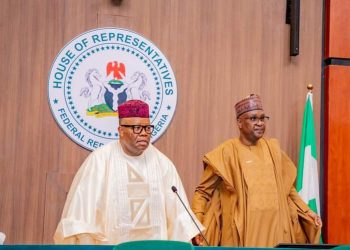A Civil Society Organization (CSO) that monitors the performance of Nigeria’s legislative bodies has raised concerns about the first year of the 10th National Assembly, particularly highlighting the slow pace of progress on bills. According to the CSO, many of the bills introduced during this period were not entirely new but were recycled from the previous 9th National Assembly. This slow progression and the reuse of old bills have sparked worries about the effectiveness of the legislative process.
The CSO, OrderPaper, which is dedicated to tracking the performance of the National Assembly, released a report card about the performance of the lawmakers. This report, based on a detailed analysis of bills processed from June 2023 to May 2024, reveals that while many bills were introduced, only a small fraction of them made any real progress. The analysis also highlighted a concerning trend of reintroducing bills that had already been considered in the previous assembly, raising questions about the genuine work being done.
OrderPaper’s Executive Director and founder, Oke Epia, made the findings public in a statement shared with the press in Abuja. According to Epia, the data revealed a significant disconnect between the number of bills that were introduced and the actual progress these bills made through the legislative process. The data also showed that many bills, particularly in the Senate, were simply recycled from the previous National Assembly rather than being entirely new proposals.
Epia pointed out that over half of the bills introduced in the Senate between June 2023 and May 2024 were either completely recycled or based on previous proposals, mostly from the 9th National Assembly. A similar trend was observed in the House of Representatives, where nearly one-third of the bills were old proposals that had been brought back to life. This, according to the CSO, raises concerns about what they described as “legislative copy-pasting,” a process where lawmakers reintroduce old bills rather than creating new ones.
Such practices have raised doubts among citizens and observers about the genuine intentions of lawmakers. Some have even speculated that this trend might indicate the commercialization of the legislative process, where bills are being recycled not because they are important, but because they are being pushed for private interests.
The analysis also detailed the stark contrast between the number of bills introduced and the actual progress they made. In the Senate, a total of 475 bills were introduced between June 2023 and May 2024. However, of these, only 19 bills were passed, while a staggering 416 bills were still awaiting a second reading. This delay in processing bills has been a cause of concern for many, as it reflects a sluggish legislative process that fails to deliver tangible outcomes for the people.
Similarly, in the House of Representatives, there were 1,175 bills introduced during the same period. Out of these, only 58 bills were passed, while the remaining 967 bills were still stuck in the legislative process, waiting for a second reading. The overwhelming majority of bills in both chambers of the National Assembly, therefore, remain unaddressed, raising questions about the efficiency of lawmakers in fulfilling their duties.
This slow pace of bill processing, combined with the recycling of old proposals, paints a picture of a legislative body that is not functioning as effectively as it should. Many Nigerians have expressed frustration with the National Assembly, feeling that their representatives are not doing enough to address pressing issues. With so many bills languishing without progress, citizens are left wondering whether their lawmakers are truly working for the public good or simply going through the motions.
The CSO’s report card also highlighted the fact that despite the large number of bills being introduced, there is little visible progress on key issues that affect Nigerians, such as healthcare, education, infrastructure, and security. The slow pace of legislative work means that many important issues are not being addressed in a timely manner, leaving citizens dissatisfied with their elected representatives.
One of the major concerns is that the National Assembly, which is supposed to be a forum for debate and decision-making on crucial national issues, appears to be bogged down by inefficiency and a lack of focus. Instead of introducing and passing new bills that can address the challenges facing the country, lawmakers seem to be more interested in reintroducing old bills that have already failed to pass in previous assemblies. This has led to growing frustration among Nigerians, who feel that their representatives are not adequately addressing their needs.
The CSO’s report also raised questions about the transparency and accountability of the legislative process. With so many bills still awaiting a second reading, there is concern that important issues may be neglected or pushed aside in favor of less urgent matters. The report’s findings suggest that the National Assembly is not living up to its expectations, and many Nigerians are beginning to question the value of their representatives.
In conclusion, the first year of the 10th National Assembly has been marked by slow progress on bills, with many of them being recycled from the previous assembly. This has led to concerns about the effectiveness of the legislative process and the ability of lawmakers to address the needs of the people. While the large number of bills introduced may seem like a positive sign, the lack of progress on these bills raises questions about the efficiency and priorities of the National Assembly. It is clear that there is a need for greater transparency, accountability, and focus on the issues that matter most to Nigerians. Until these issues are addressed, it is likely that public frustration with the National Assembly will continue to grow.

